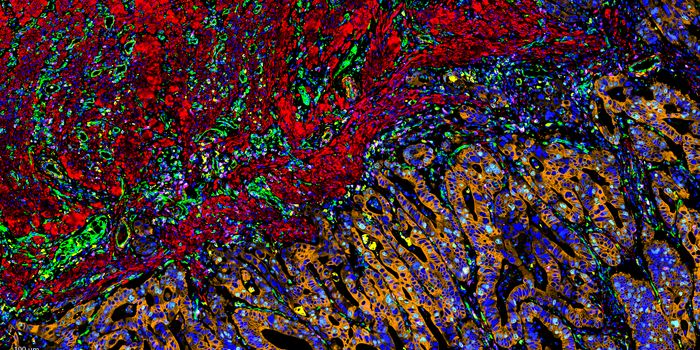Novel RNA-based Therapy Targets Melanoma
Cancer is a general term that encompasses different subtypes of abnormal cellular growth in different areas of the body. One such type of cancer is the uncontrollable proliferation of skin cells known as melanoma. Melanoma can be metastatic, meaning it can spread to other areas of the body. It can also form in the eye or even in the nose or throat. It can be a highly aggressive disease, and there are many different approaches scientists are coming up with to treat it. Currently, surgery is the primary standard of care for patients. Chemotherapy, a type of therapy designed to kill cells, or immunotherapy, therapies that target immune cells to kill the cancer, are other forms of treatment. Recently, a group at the Icahn School of Medicine at Mount Sinai, New York, New York, has developed a novel approach to treat melanoma.
Dr. Yizhou Dong and colleagues published in Nature Nanotechnology, describing a new therapy that targets specific immune cells known as dendritic cells. Dendritic cells are cells that present molecules from invading pathogens to other immune cells to elicit an immune response and kill the disease. Dong and colleagues used a ribonucleic acid (RNA)- based therapy to activate dendritic cells and generate the immune response against pathogens. RNA is genetic material used to make different proteins in cells and is often used in cell replication. What makes this approach so interesting is that it eradicated melanoma and prevented it from reoccurring in animal models.
Dong and colleagues suggest that this RNA therapy can be used on advanced melanoma patients where the disease has metastasized to other areas of the body. Researchers have found that the environment around the tumor suppresses the immune system by polarizing immune cells to be pro-tumorigenic. In this case, normal cells that would normally attack the tumor are reprogrammed to ironically help the tumor progress. Immunotherapy researchers have tried to overcome this phenomenon by reversing that reprogramming mechanism so the immune system can directly kill tumor cells.
The treatment is called CATCH, which uses nanoparticles to deliver mRNA to dendritic cells. This is similar technology to the COVID-19 vaccine, which ensures dendritic cells are activated to fight off invading pathogens by generating an immune reaction. Researchers found that by giving mice this treatment, the environment around the tumor completely shifted, and the cells in the surrounding area were able to target the tumor. The mice were also rechallenged with the tumor and found to have active immunity. Therefore, the therapy not only eradicated the initial tumor but prevented more tumors from arising, indicating a long-lasting immune effect.
Dong and colleagues have significantly pushed the field of immunotherapy forward by introducing a novel therapy effective in metastatic tumor models. While studies strictly show progress in mice, these results provide encouraging promise for clinical trials in humans. More importantly, the researchers tested this therapy in B cell lymphoma and breast cancer and found it significantly reduced tumor growth with similar effects. Therefore, this treatment can be applied to other cancers, which demonstrates a significant impact in the field of cancer medicine. Overall, this new approach may help significantly treat melanoma and other cancer patients.
Published, Yizhou Dong, Icahn School of Medicine, Nature Nanotechnology








